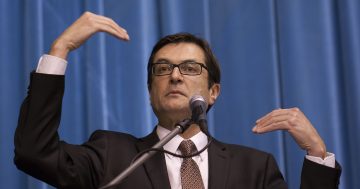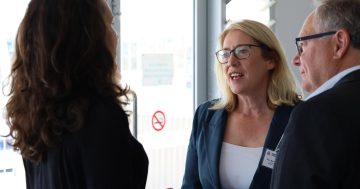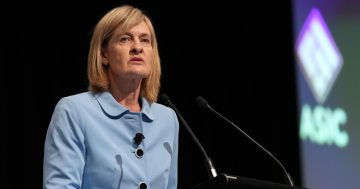Glenda Korporaal* says super funds are looking to work with Government on emerging market investments.
 Australian superannuation funds could look at stepping up investments in emerging markets such as Indonesia, if they can get Federal government backed insurance for higher risk investments which may be seen as furthering Australia’s “strategic objectives”.
Australian superannuation funds could look at stepping up investments in emerging markets such as Indonesia, if they can get Federal government backed insurance for higher risk investments which may be seen as furthering Australia’s “strategic objectives”.
A paper released by the Association of Superannuation Funds of Australia (ASFA), which follows a high level delegation of super funds to Indonesia, calls on the government to consider some form of risk sharing if super funds were to make major investments offshore in the region, particularly in critical infrastructure projects.
It suggests that this could be done by a special purpose entity which could provide insurance for institutional investors against risks which were above normal business risks.
“The Indo Pacific provides opportunities for institutional superannuation to invest in quality critical infrastructure that would augment funds’ infrastructure portfolios, while at the same time boosting the economic and broader community well being of recipient countries,” it said.
“To the extent that this concurs with Australia’s broader strategic objectives in the region, the Australian government could put in place mechanisms to offset the impact of certain market failures on the investment decisions of Australian institutional investors, including superannuation funds.”
The paper says that under the insurance proposal premiums would be paid by the super fund investors, but they would be subsidised by the government so the funds were only subject to “normal business risks associated with a particular project”.
Speaking about the report, ASFA chief executive Martin Fahy told Investment Magazine super funds were conscious there was a “real opportunity to deploy capital” in emerging markets in the region including in Indonesia and India.
But he said the superannuation sector had to be cautious because it was required to act in the best financial interests of its members.
He said it was critical that if funds were to invest in projects in these countries that they were “not exposed to unnecessary sovereign risk.”
More collaboration
ASFA’s comments on a possible risk sharing arrangement for potential investors in the region were part of a broader paper looking at ways the sector could work more closely with government to invest in areas of national interest.
This follows a call by Federal treasurer Jim Chalmers to super funds to look for ways for more collaboration between government and super funds on a range of national priorities including building more affordable housing and initiatives which would help meet the Federal government’s commitment Australia would be net-zero carbon by 2050.
An ASFA statement issued with the report said there could be opportunities for collaboration between funds and governments in areas such as affordable housing and climate change.
It said there were a range of potential investment opportunities for super funds from national economic transitions such as energy, digital infrastructure, affordable housing, health care and aged care.
ASFA said there would be greater scope for investment by super funds supporting national policy goals if the Commonwealth government could “create pathways to prove out investment methodologies” and the government’s Climate Change Bill provided a more coherent framework for decision making across the economy.
Deepening ties
The paper follows a recent visit to Indonesia by financial services minister Stephen Jones and senior executives in the funds management and industry superannuation fund sector led by Greg Combet, the chairman of the $200 billion industry super fund investment vehicle IFM Investors.
Investors represented in the delegation, which went to Indonesia and Singapore, were from AustralianSuper, Aware Super, Cbus, UniSuper, Macquarie Asset Management, the Future Fund and the Queensland Investment Corporation.
In an interview with ABC’s Radio National last week after the release of the report, IFM chairman Combet said Australia needed to “deepen the economic engagement with Indonesia”.
Australian super funds had historically not thought of countries like Indonesia as being attractive places to invest, he said.
Most of the offshore investments of IFM and other super funds were in Europe and North America where investors had confidence in the legal system and there was more transparency around the institutional and regulatory systems.
“In Indonesia, that has historically been seen as quite difficult,” he said, but “sometimes superannuation investors need a prod from government”.
Combet said he was asked to lead the delegation to Indonesia by Prime Minister Anthony Albanese who visited Indonesia soon after taking office.
The Indonesian government was keen to hear from Australian investors on ways to attract investment by Australian super funds to invest in toll roads and other critical infrastructure in the country.
“Indonesia is one of the largest economies in the world.
“It is a very important neighbour.
“It is important for us politically, economically and from a security point of view.”
“We must deepen our engagement with Indonesia.
“This is what the Prime Minister is looking to us to think hard about.”
The visit to Indonesia by super funds follows similar visits made by super fund delegations offshore under the previous Labor government.
Former minister for Superannuation, Bill Shorten, led delegations to Israel and Myanmar which was opening up at the time in the wake of the release of political leader Aung San Suu Kyi.
However, Myanmar proved too politically risky for the funds to invest in as political events took a turn for the worse.
Lack of investment
The theme of super funds considering investments in Indonesia, was picked up in a speech to ASFA members in Canberra last week by minister Jones who noted the lack of investment in Indonesia by Australian super funds.
But he said funds from Canada, the Netherlands and the United Arab Emirates did invest there.
“It is clear that other countries are doing a better job of opening investment doors than we are,” he said.
He said the government should look to “take a leadership role” to work with super funds to explore investment opportunities in the region and encouraging trade with the region had been a deliberate part of government strategy “for decades”.
He said government had taken moves in the past to encourage trade and exports in new markets in the region for Australia’s resources, agriculture and universities.
“There is a critical role here for government when it comes to our super funds as well,” he said.
*Glenda Korporaal has been covering business and finance in Australia and around the world for more than thirty years. Her career has included stints as deputy editor of the Australian Financial Review and business editor for The Bulletin magazine.
This article first appeared at investmentmagazine.com.au.











